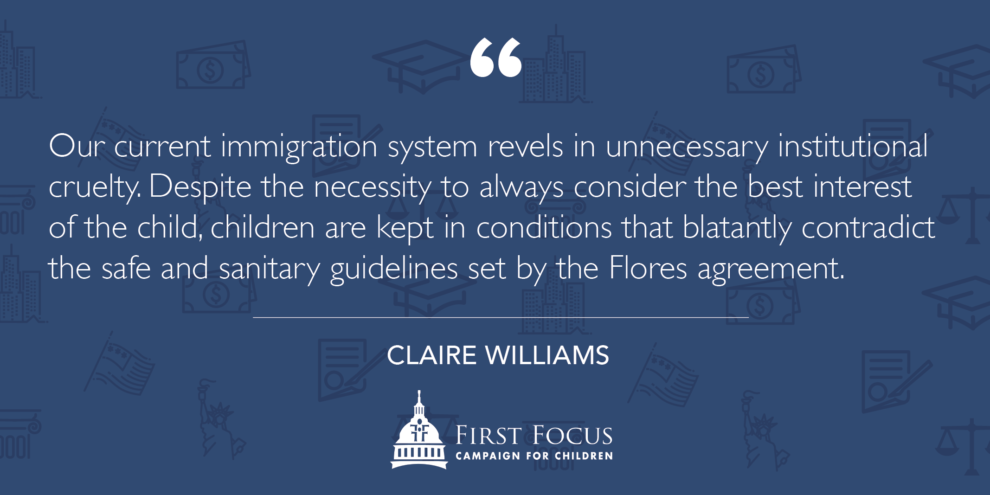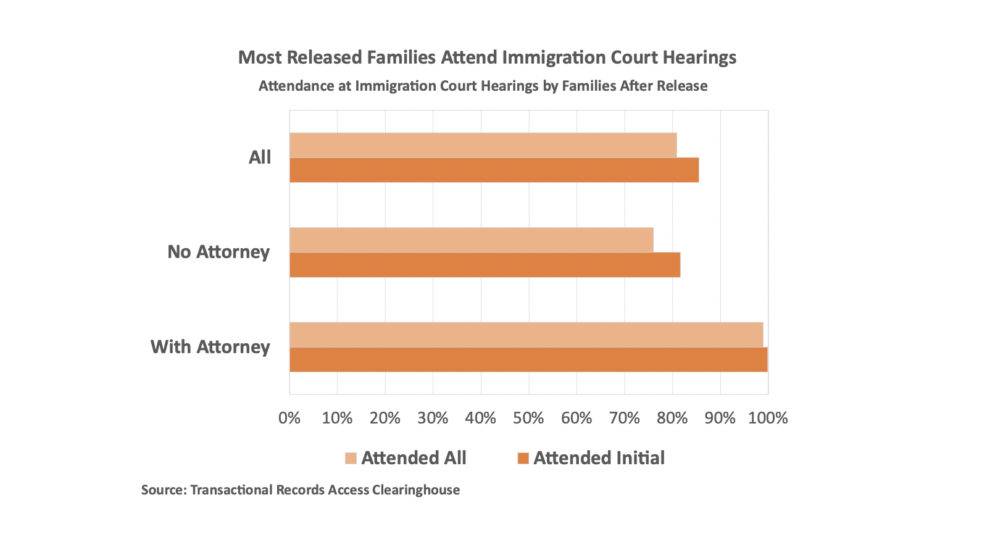
In anticipation of the House Oversight subcommittee hearing entitled “Kids in Cages,” I waited in the halls of the Rayburn House Office Building for more than two hours to secure a seat in the hearing room. Given the high-profile subject matter, many others from Capitol Hill and human rights organizations stood alongside me hoping for the chance to hear Yazmin Juárez’s emotional testimony about the loss of her daughter Mariee six weeks after being released from detention by U.S. Immigration and Customs Enforcement. The hallway was crowded and hot and the standing was uncomfortable.
In that moment, I thought about the children in Clint and Dilley and El Paso.
I pictured them separated from their parents, denied knowledge of their whereabouts, deprived of basic safe and sanitary conditions, and unsure about when the nightmare would end. As I walked out of the hearing room after hours of testimonies, tears and calls to action, I felt as though I had gotten a very small glimpse of the emotional and physical damage forced upon these immigrant children at the border.
Congress recently allocated more than $4 billion to assist with conditions at detention centers, but money cannot and will not solve this moral crisis. Children should not be separated from their families unless there is an immediate threat to the child and they should never be placed in cage-like facilities. Detention of children and families is utterly cruel and traumatic. Ms. Juárez testified that she immediately recognized sick children upon her arrival at the facility in Dilley, Texas and called the cells “ice boxes” due to the extreme cold. She vehemently emphasized that the conditions she faced failed to meet the definition of “safe and sanitary” as outlined by the Flores agreement. To her, the United States represented the land of opportunity, liberty, dreams, work and great doctors…the land in which she could do the things she was unable to do in Guatemala as a result of threats to her and her daughter’s safety. Yazmin’s experience in detention gave her a picture of America that will forever be tainted by the negligence and apathy that robbed her of her daughter.
Our current immigration system not only lacks humanity, it revels in unnecessary institutional cruelty. Despite the necessity to always consider the best interest of the child, children are kept in conditions that blatantly contradict the safe and sanitary guidelines set by the Flores agreement. Since lawyers, pediatricians and politicians gained access to the centers, the truth has emerged regarding children in filthy conditions. Many children smell rank, lack access to clean toilets and showers, are unable to brush their teeth, cannot protect themselves from the extreme cold, face lice infestations, are exposed to flu outbreaks, and do not receive adequate nutrition, among other things. Above all else, many are forced to endure their lengthy detention without the comfort of their parents.
Detention is portrayed by the Trump Administration as a deterrent and a way to hold immigrants accountable for attending court proceedings. However, according to Syracuse University’s Transactional Records Access Clearinghouse, which obtained court records through the Freedom of Information Act, 99 percent of families who were released from detention with representation attended all of their hearings.[1] When the family is released from detention but not represented, 80 percent still attended all of their hearings.[2] When families do fail to appear, it is most often not because they want to skip the hearing, but because they could not read the English instructions, received incomplete information, or failed to receive any information at all. In fact, absentia rates have rarely ever been a problem. Department of Justice statistics report that between 2013 and 2017, 92 percent of asylum seekers appeared in court to receive a final decision on their claims.[3] Despite historically high attendance, the current system punishes children and their families under the pretense of an attendance problem that does not exist. In fact, the Administration has testified that the reason they ended the successful family case management program, which served as a cost-efficient alternative to detention, is because the number of removals wasn’t high enough. When children and families have representation, they are better equipped to navigate our broken immigration system, and therefore have more successful outcomes.

Children are being used as pawns to advance a political agenda when our priority should be the safety and well-being of these innocent lives. These children face incredible risk on the journey to the U.S.-Mexico border. They should not also have to fear for their safety once in the custody of American officials.
During the “Kids in Cages” hearing, one statement in particular stood out to me. Rep.Lacy Clay (D-Mo.) said: “We as Americans should be ashamed of what has transpired at these detention centers and if you are not, you have lost your soul and compassion for others.”
First Focus Campaign for Children urges the Administration and members of Congress to support legislation that protects immigrant children in our custody.
The Humanitarian Standards for Individuals in Customs and Border Protection Custody Act (H.R. 3239) offers much needed provisions to meet medical, nutritional and safety standards for children and families. We call on Congress to pass this bill and others like it that will assure clean, safe circumstances for children and mitigate the trauma they suffer at our border. We can and we must do better by the children.
[1] https://trac.syr.edu/immigration/reports/562/#f1
[2] https://trac.syr.edu/immigration/reports/562/#f1
[3] https://www.humanrightsfirst.org/resource/fact-check-asylum-seekers-regularly-attend-immigration-court-hearings